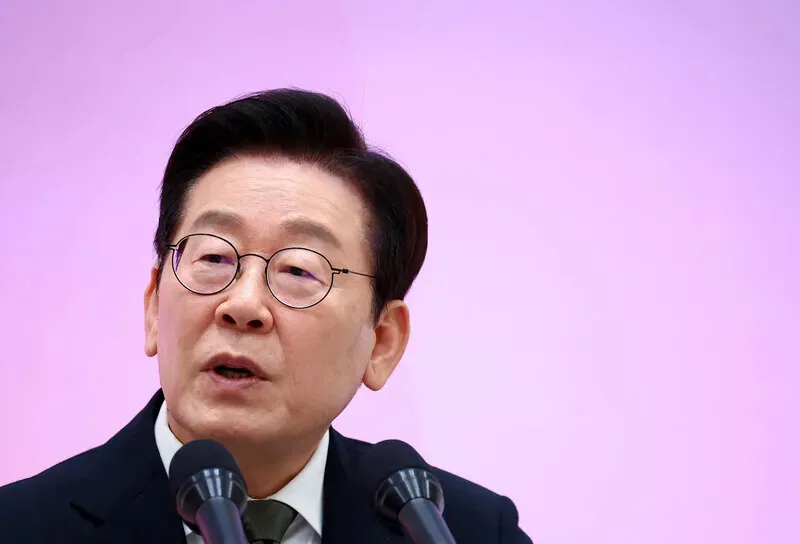President Lee Jae Myung speaks to mayors, county leaders and district chiefs on his administration’s coverage goals on the Blue Home guesthouse on Nov. 12, 2025. (Yonhap)
President Lee Jae Myung’s approval score inched as much as 61%, returning to the 60% vary for the primary time in over two months. Regardless of the latest political turmoil brought on by the nation’s appearing prime prosecutor’s controversial dealing with of a courtroom ruling on a corruption growth scandal linked to Lee, the president managed to see an increase in his ballot numbers.
In keeping with the Nationwide Barometer Survey outcomes launched on Thursday, performed by Embrain Public, Kstat Analysis, Korea Analysis Worldwide, and Hankook Analysis from Monday to Wednesday, 61% of respondents mentioned Lee is “doing effectively” at managing state affairs.
This marks a 5-percentage-point enhance from polling outcomes two weeks prior, through which respondents had been surveyed from Oct. 27 to 29.
After reaching 62% within the first week of September, Lee’s approval score hovered within the 50% vary for 2 months earlier than rebounding on this survey, recovering to the 60% vary.
Lee’s disapproval score, which accounts for respondents who expressed that the president is “doing poorly,” fell 6 proportion factors to 29%.
The phone interview survey had a confidence stage of 95% and a margin of error of plus or minus 3.1 proportion factors.
The share of respondents who mentioned they “belief” within the president’s potential to handle state affairs additionally reached 61%, rising 4 factors in comparison with a month in the past. Of these surveyed, 33% mentioned they “didn’t belief” Lee’s strategy.
Social gathering approval scores confirmed the Democratic Social gathering at 42%, up 3 factors from the earlier survey, whereas the Folks Energy Social gathering fell 4 factors to 21%. The hole between the 2 events widened considerably to 21 proportion factors, in comparison with 14 factors within the final survey.
The highest two events had been adopted by the Rebuilding Korea Social gathering at 4%, the Reform Social gathering at 3%, the Progressive Social gathering at 1%, whereas 27% of respondents mentioned that they didn’t assist any social gathering, had been not sure, or declined to reply.
In questions concerning which social gathering would higher deal with particular coverage areas, the Democratic Social gathering once more garnered higher approval.
On welfare, 54% of respondents selected the Democrats whereas 17% picked the PPP; for international affairs and commerce coverage, scores for the Democrats had been at 53% and PPP at 23%; for inter-Korean relations and safety coverage, 50% supported the Democrats and 25% the PPP.
For epidemic prevention and public well being, the Democrats had a score of 49%, and the PPP 19%; for employment, the Democrats had been at 46%, and the PPP at 18%. Lastly, on insurance policies lowering polarization, 44% of respondents selected the Democrats, and 18% the PPP.
The Democratic Social gathering additionally led in actual property coverage, although the hole between the 2 events was narrower, with 34% of respondents supporting the ruling social gathering and 26% supporting the PPP.
Concerning the federal government’s fiscal administration, 50% of respondents answered that austerity measures are mandatory due to the fiscal deficit, whereas 38% answered that fiscal growth is important to bolster the struggling non-public sector.
Opinion was break up on limiting in a single day deliveries between the hours of midnight and 5 am, with 49% saying the service ought to stay as is for customers’ comfort, and 45% stating it needs to be partially restricted for employee well being and security.
This survey polled 1,004 residents aged 18 and over between Monday and Wednesday. Particulars might be discovered on the Nationwide Election Survey Deliberation Fee web site.
By Jang Na-rye, workers reporter
Please direct questions or feedback to [english@hani.co.kr]

